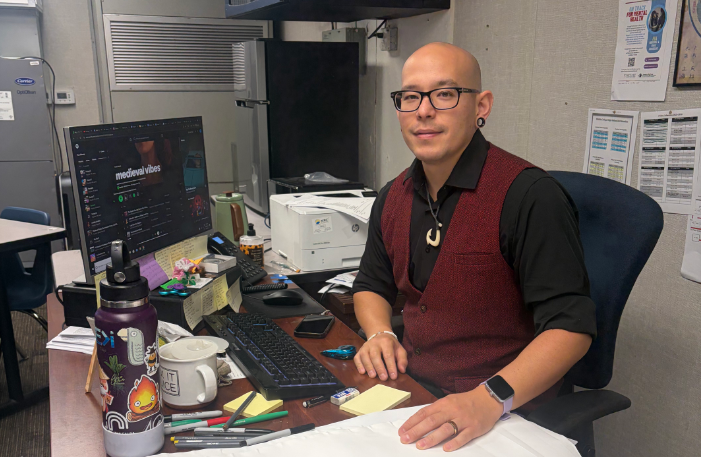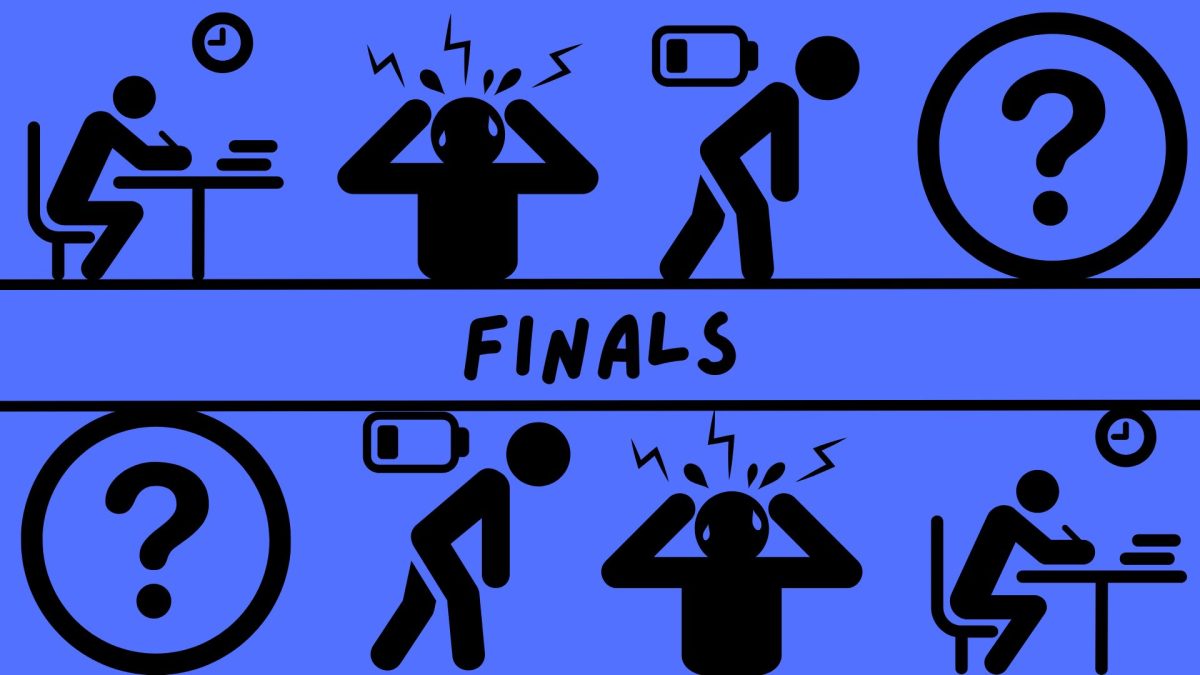It is a Tuesday afternoon, and you are home sitting at your desk. You have papers covering every surface, highlighters with little to no ink, and broken lead pieces around you. To top it off, you have a migraine from the hours spent intensely staring at your screen and carpal tunnel from writing and highlighting. To be more direct, it’s the week of terror, the week of blood, sweat, and tears. It’s finals week.
Finals week is a very crucial yet stressful time. Many students dedicate all their time to studying, making it hard for them to focus on their well-being, which can ultimately affect their academic performance and mental health. Throughout this article, we will explore the different experiences and opinions surrounding finals and their impact on students.
The stress of finals can lead to a negative impact on students’ mental and physical health. Many students experience heightened anxiety, lack of sleep, and feel overwhelmed with everything on their hands. Physically, the long hours of studying and lack of rest can result in headaches and fatigue.
Junior Joaquin Mendoza shares his input about the decline of his physical health.
“Finals aren’t affecting me mentally, but it is affecting me physically. I say this because towards finals week, classes often give the most work, whether it’s working on projects, homework, etc. This leads to me not being able to hit the gym as often as possible,” Mendoza said.
Studying for finals often interferes with students’ personal time. Many students find themselves staying up late or studying throughout the day, which takes their attention away from other activities like hanging out with friends or spending time with family.
Senior Leslie Capiz mentions how studying is slowly eating away at the time she has for herself.
“It’s cutting into my personal time a lot. I haven’t been hanging out with friends as much or doing things I enjoy because I feel like I need to finish good and study,” Capiz said.
Even though finals are very stressful, students find different ways to cope with the pressure. Some students turn to working out or meditation so their minds can clear up, while others take small breaks and relax. Students also find comfort in talking with friends and seeking help from teachers. These different strategies help students through challenging times.
Freshman Melany Ramos explains one of the ways she copes with finals.
“To cope with finals, I try to talk it out with friends who are also stressed. Probably not the best way, but just knowing someone else is struggling with me helps me feel better,” Ramos said.
After a stressful week, many students often decide they deserve to reward themselves. Whether it’s going out with friends, treating themselves to delicious cuisine, or simply just sleeping all day, they choose to treat themselves.
“Once finals are over, I’m definitely going to sleep in, go out with my friends, and just enjoy the little bit of freedom before graduation,” Capiz said.
As finals week comes to an end, students need to reflect on their experiences and recognize their resilience. While the stress of finals can be overwhelming, the strategies students use to cope with this pressure reveal their ability to adapt and the strength they have. It’s important to remember that taking care of one’s mental and physical health is just as crucial as academic success. Moving forward, students can aim to balance their everyday lives with studies, not only ensuring they survive finals but also prosper throughout their educational journey.


































